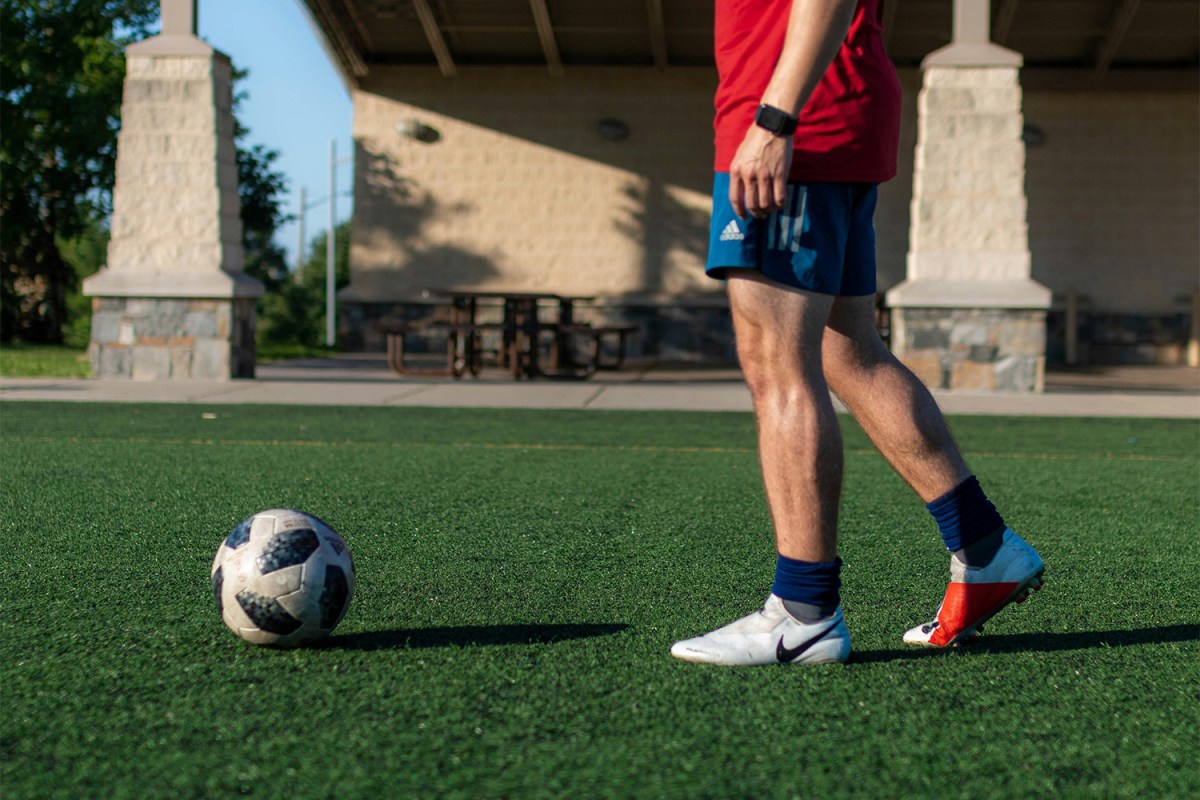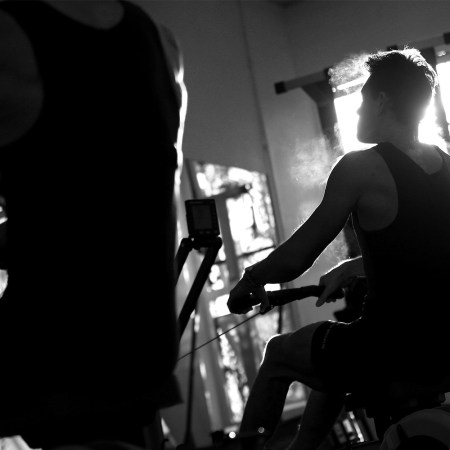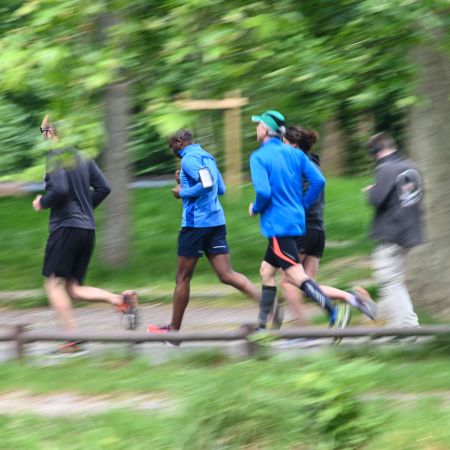I saw a great Instagram reel a few weeks ago, courtesy of skating/culture mag Jenkem, in which an intramural soccer player points out a 73-year-old member of his team, named Kang.
“I’m sure he’s turning 74,” the man says. “If you can walk, like without any problem [at the age] of 73, you’ll be stoked…that man plays like a 20-something-years-old guy every fucking day. He never misses a game. Never.”
I loved what Kang had to say about his Iron Horse-esque reliability, over 21 years of playing for the same soccer club (in what looks like New York City’s St. Vartan Park). He relayed: “We share a bond over football. And staying healthy by exercising all these years. The determination and dedication this club has, has kept us all together. Everyone is nice here to each other.”
Finally, I especially loved the top, conclusive comment on the post, from a skateboarder named Thomas Kring: “The trick is simple,” he wrote. “Never stop. What ever you do. Never stop.”
The Case for Eavesdropping
It gets a bad rap, but “listening in” is actually good for youLongevity > Performance
Most sports — and most sport-pursuits, like running or cycling — value performance above all.
The term umbrellas one’s stats, wins, accolades, general flair. The hallmarks of excellence. All athletes (amateurs and pros, youths and adults) learn to assess their relationship with their sport(s) of choice through this paradigm. There are good games and bad games. Triumphant seasons and those that just didn’t come together. Eventually, some players or trainees may come to think of themselves as no longer “particularly good” at their hobby of choice. As they age, they might borrow the phrase “washed up.”
But if they keep at it, nonetheless, how much does performance really matter? Rarely do we weigh the ledger of performance against larger, more existential questions. Such as: How did I live my life? Was I outside enough? Did I share it with others? How long was I able to run a mile or kick a soccer ball? How many days of my life did I spend on my feet, still running around like a little kid?
From this perspective, one’s “performance” — say, in an individual track meet or intramural soccer game — feels trivial. Small change, compared to the joys of longevity.
Keep Showing Up
Ironically, the only way to guarantee poor performance in an activity…is to stop doing it entirely. To no-show it for the rest of your life. There are so many reasons we stop moving. We get injured, we have kids, we get too busy, etc. But subsisting on “glory days” memories for the rest of them is silly.
The only way forward is to keep showing up, as stubbornly as possible, for as long as you can. Consider: once men turn 40, their testosterone levels begin to drop at a rate of 2% per year. And even just five weeks without strength training, for instance, can accelerate “decay rates”...making it that much harder for an athlete to earn back his gains from the month prior. Now imagine dodging strength training for a decade.
Still, as recent findings have expressed, metabolism doesn’t slow down quite as quickly as people tend to believe. (What slows it down is an extremely sedentary lifestyle.) If you want to live an active, sociable and capable existence like Kang, or this 69-year-old (?!) who practices calisthenics on the beach every day, you need to tell yourself that you will never stop, no matter what.
Of course, we’re all for taking recovery days; we’ve railed against the no-days-off, overtraining rabbit hole that some adult athletes can fall into. Think of “showing up” less as a gung-ho training mandate, and more of a resolution for a life spent moving. It’s a permission slip to keep trying, to keep failing — to keep going when you don’t feel like it, to keep missing shots, to keep signing up for workout classes where you initially embarrass yourself…with the encouraging knowledge that one day, someone will find it hard to believe you’re 70 years young.
The Charge will help you move better, think clearer and stay in the game longer. Subscribe to our wellness newsletter today.


























